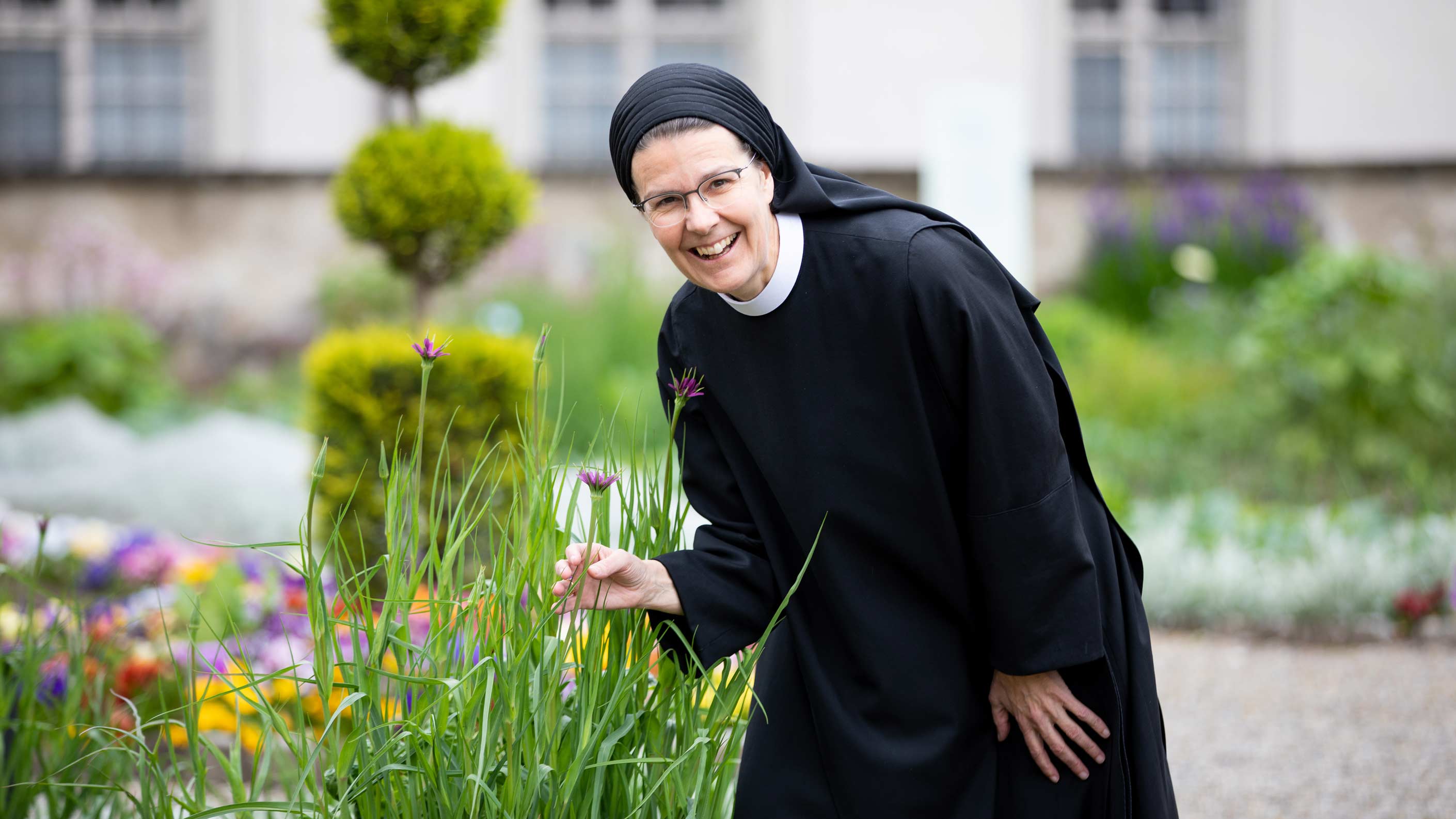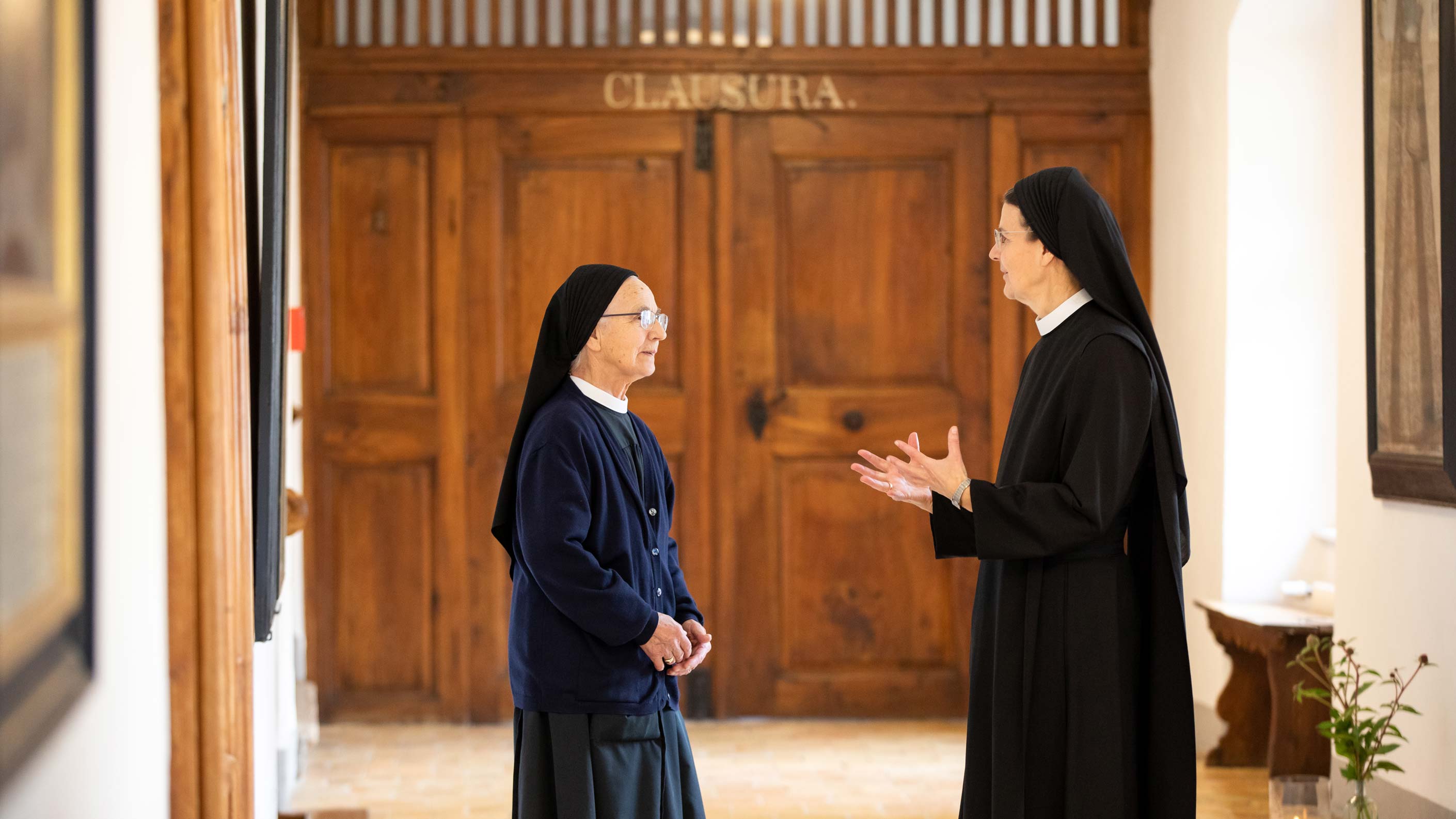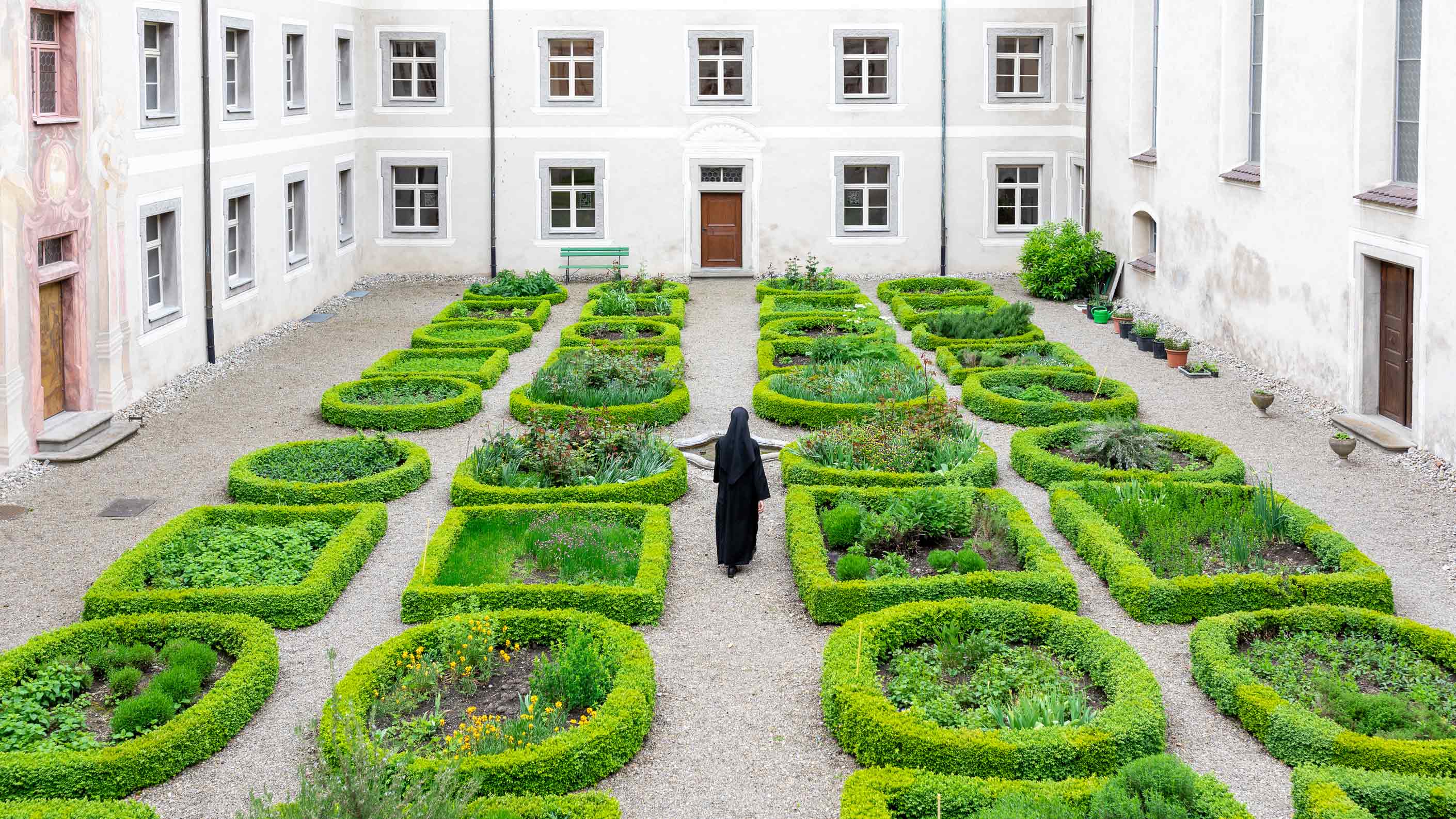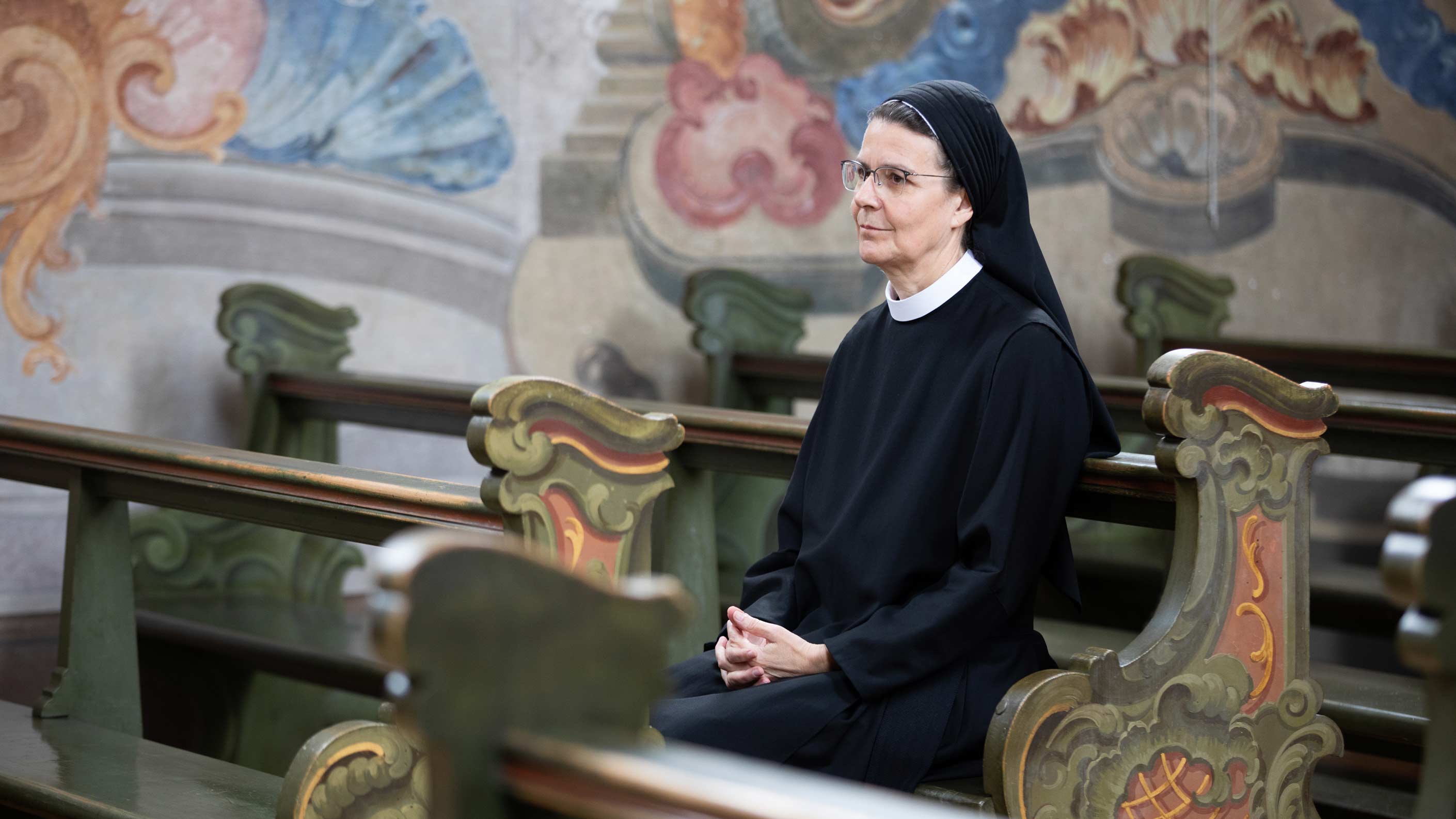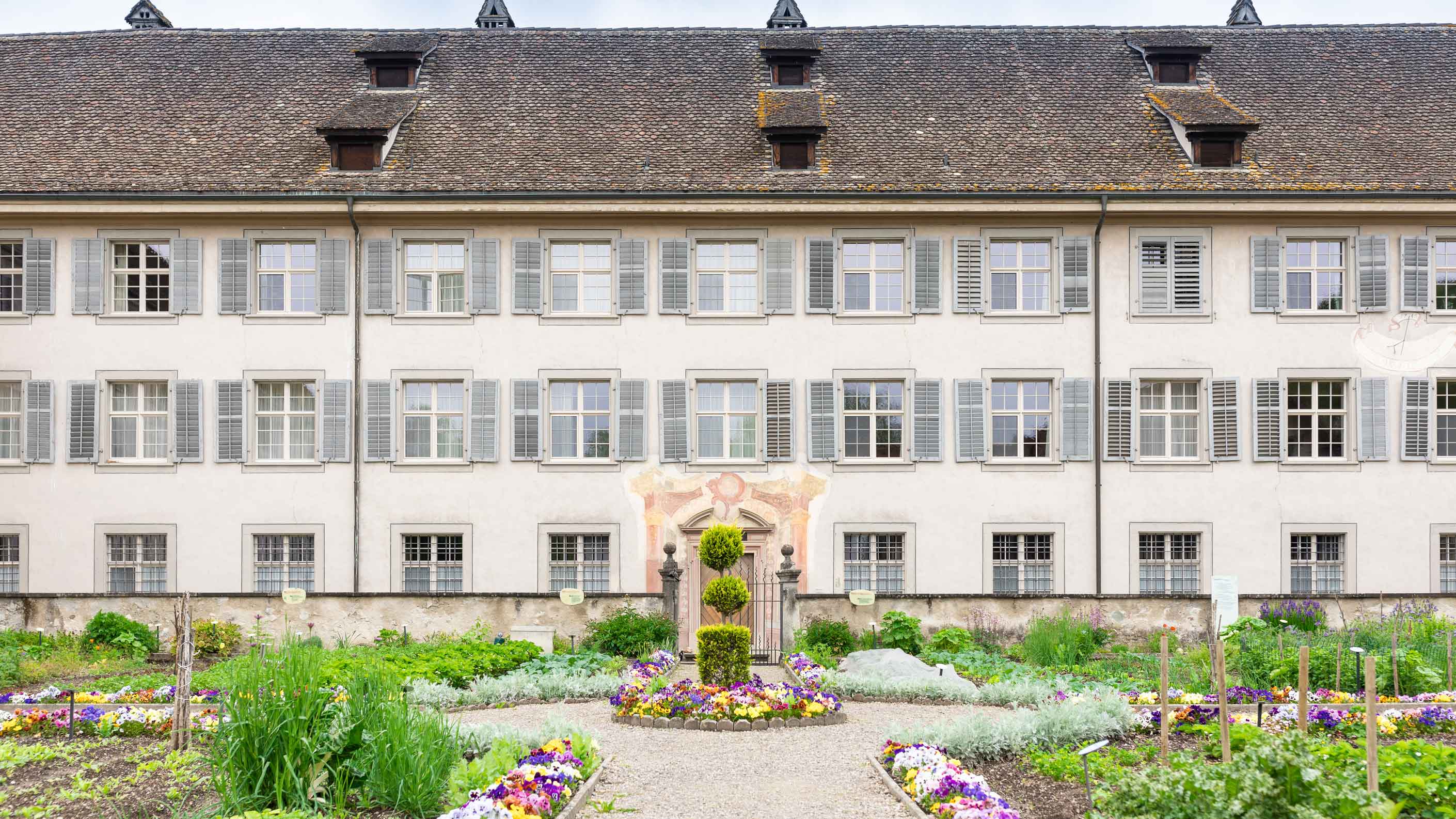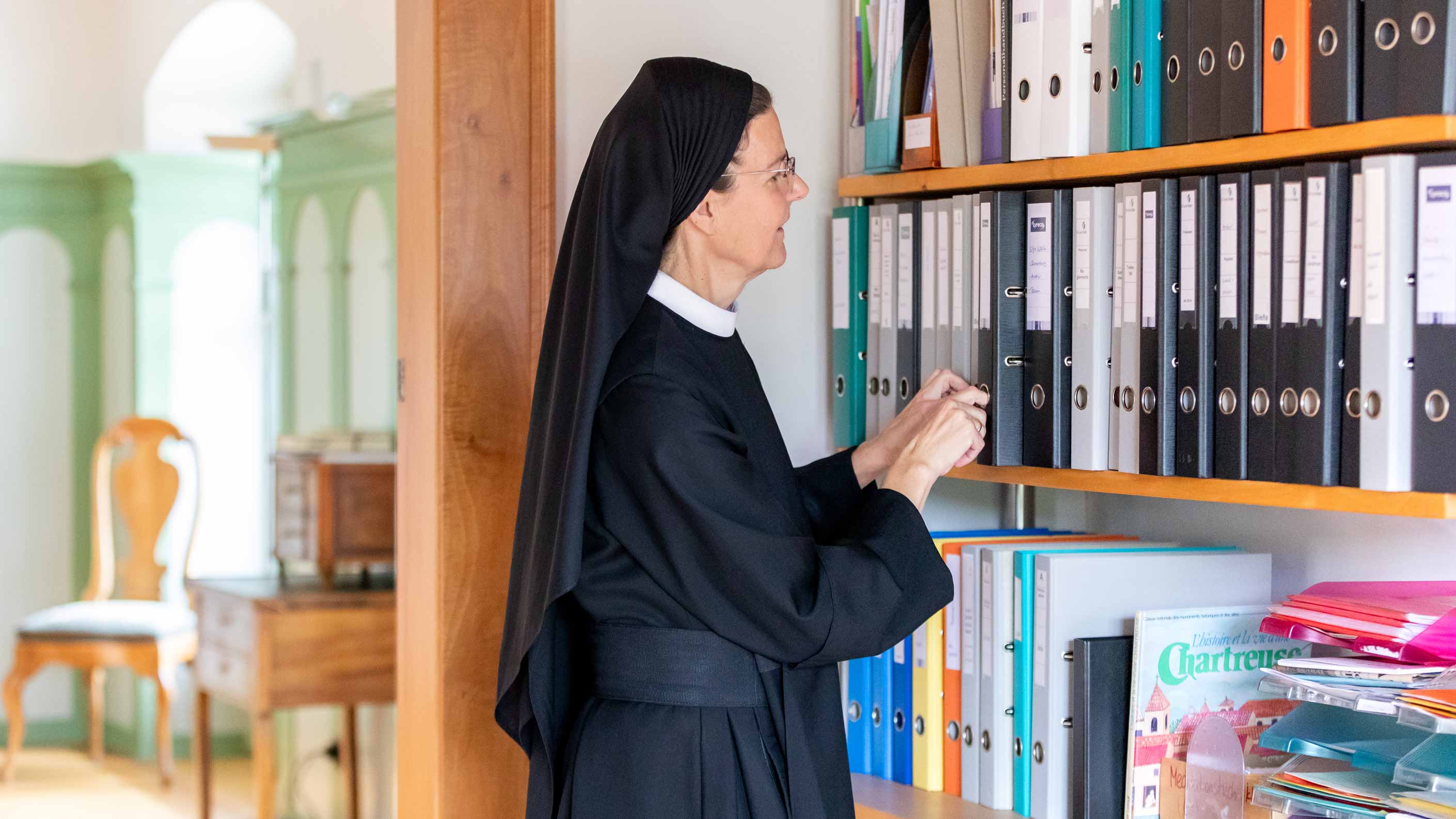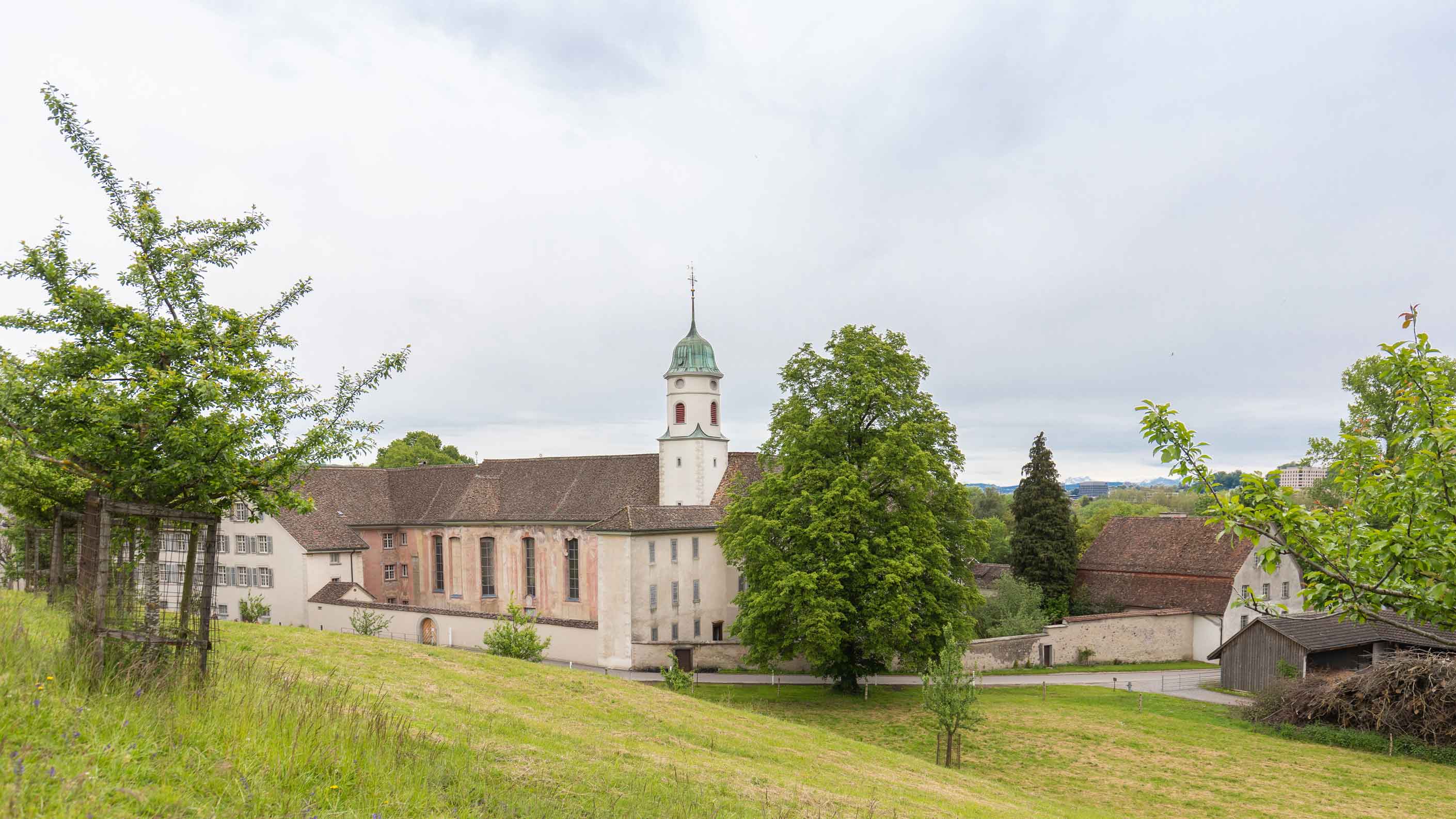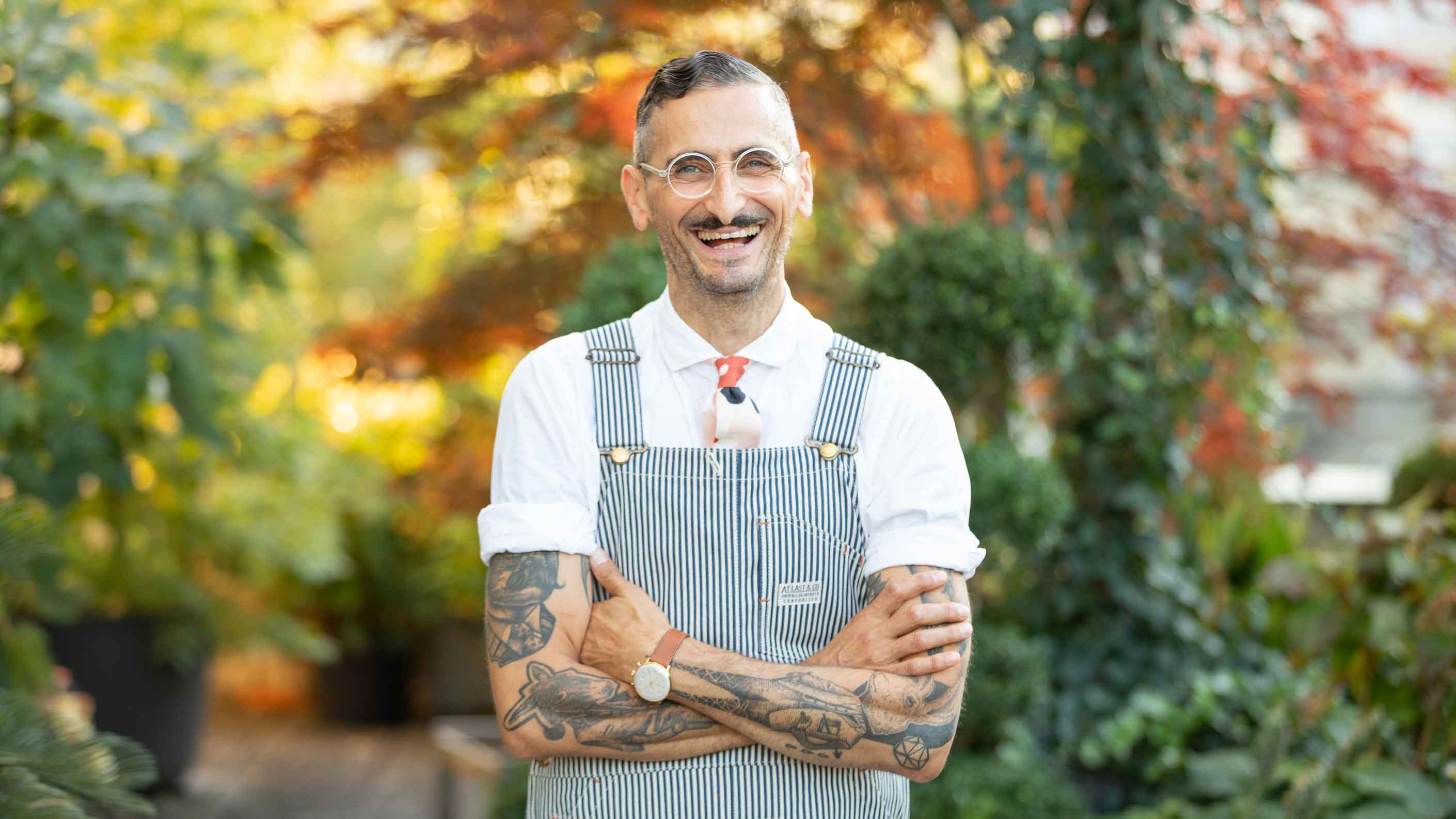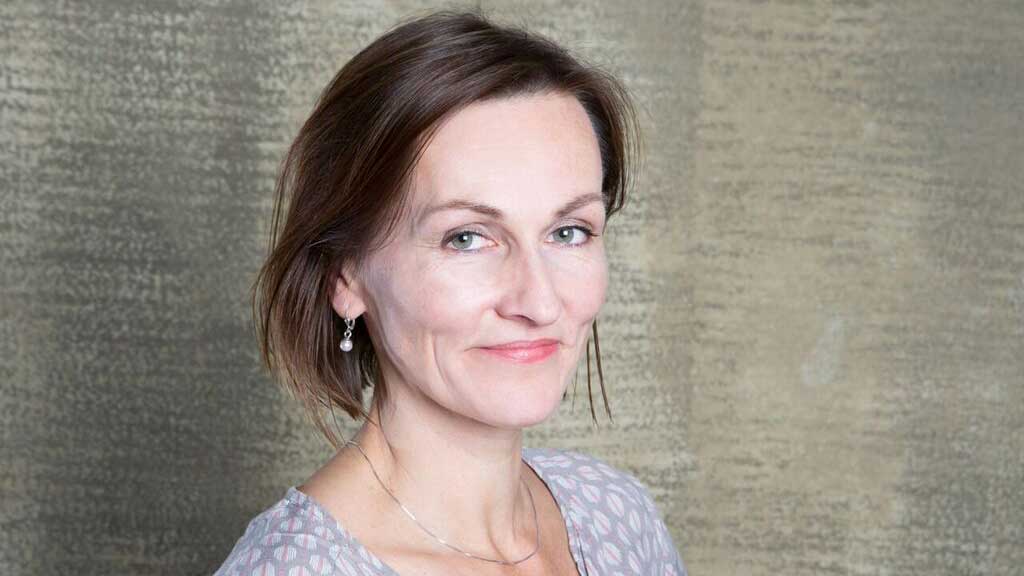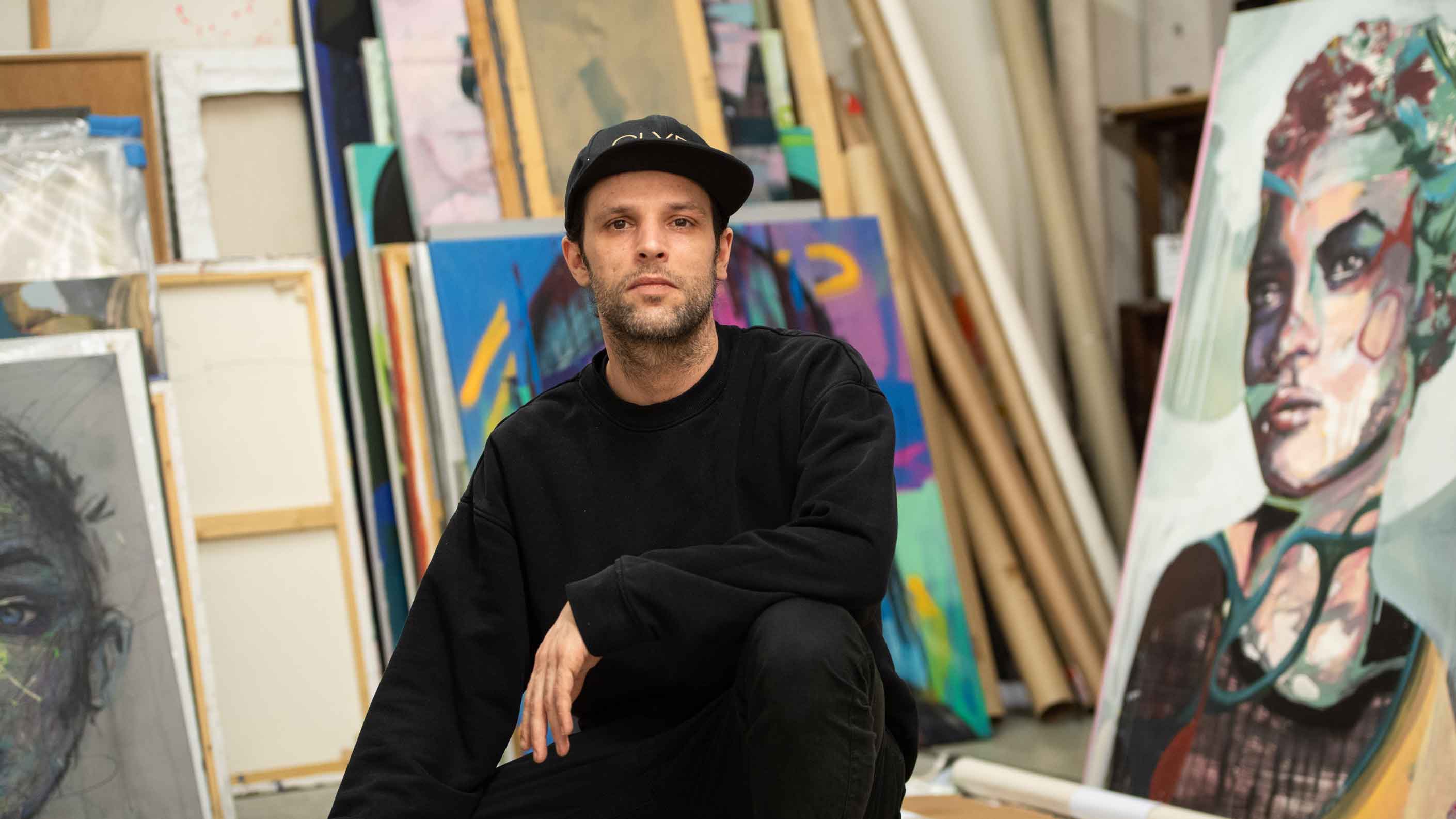People & Living | Unusual professions
‘I receive neither a salary nor pocket money’
Zurich people with unusual professions. Irene Gassmann is prioress at Fahr Convent on the outskirts of Zurich. Her life as a Benedictine nun plays out within the convent’s walls, which are almost 900 years old. The fact that the sisters have a problem attracting new members confronts the prioress with challenges that she uses creative strategies to overcome. However, Irene, a feminist, is still battling against the difficulty that the Catholic church has in accepting equal rights.
I talk to Irene Gassmann in an online meeting. She is sitting in a large office – her priory – at Fahr Convent. She has lived here for about 35 years, and for the past 18 years she has been the prioress leading the community of sisters. Irene is a cheerful personality, open to new ideas and considered in her responses.
As a Benedictine, Irene follows the rule of St Benedict of Nursia, which dates back almost 1,500 years. Her day begins at 5:30 am and is clearly structured into units devoted to work, prayer and reading. These work units are almost reminiscent of those of a business manager.
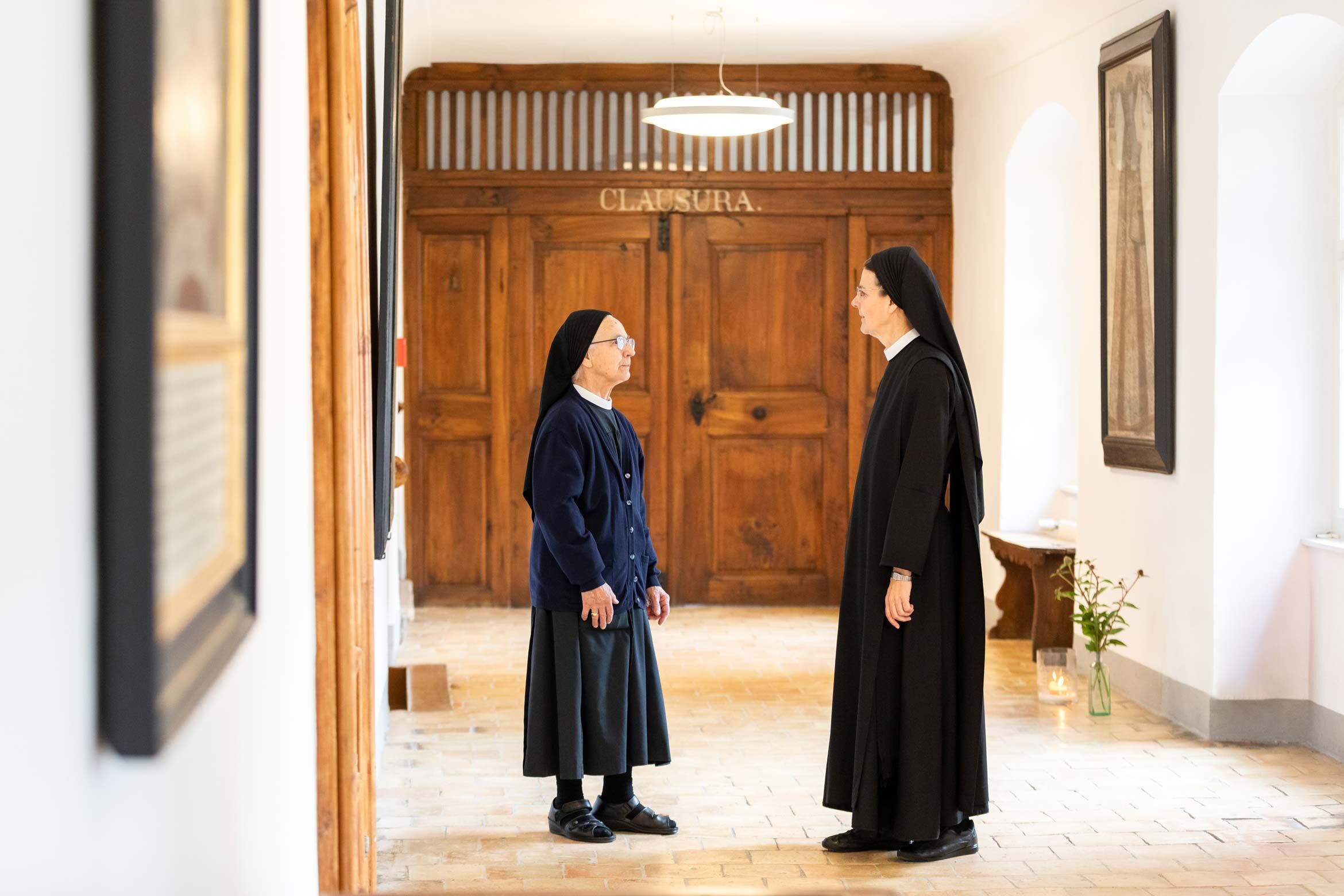
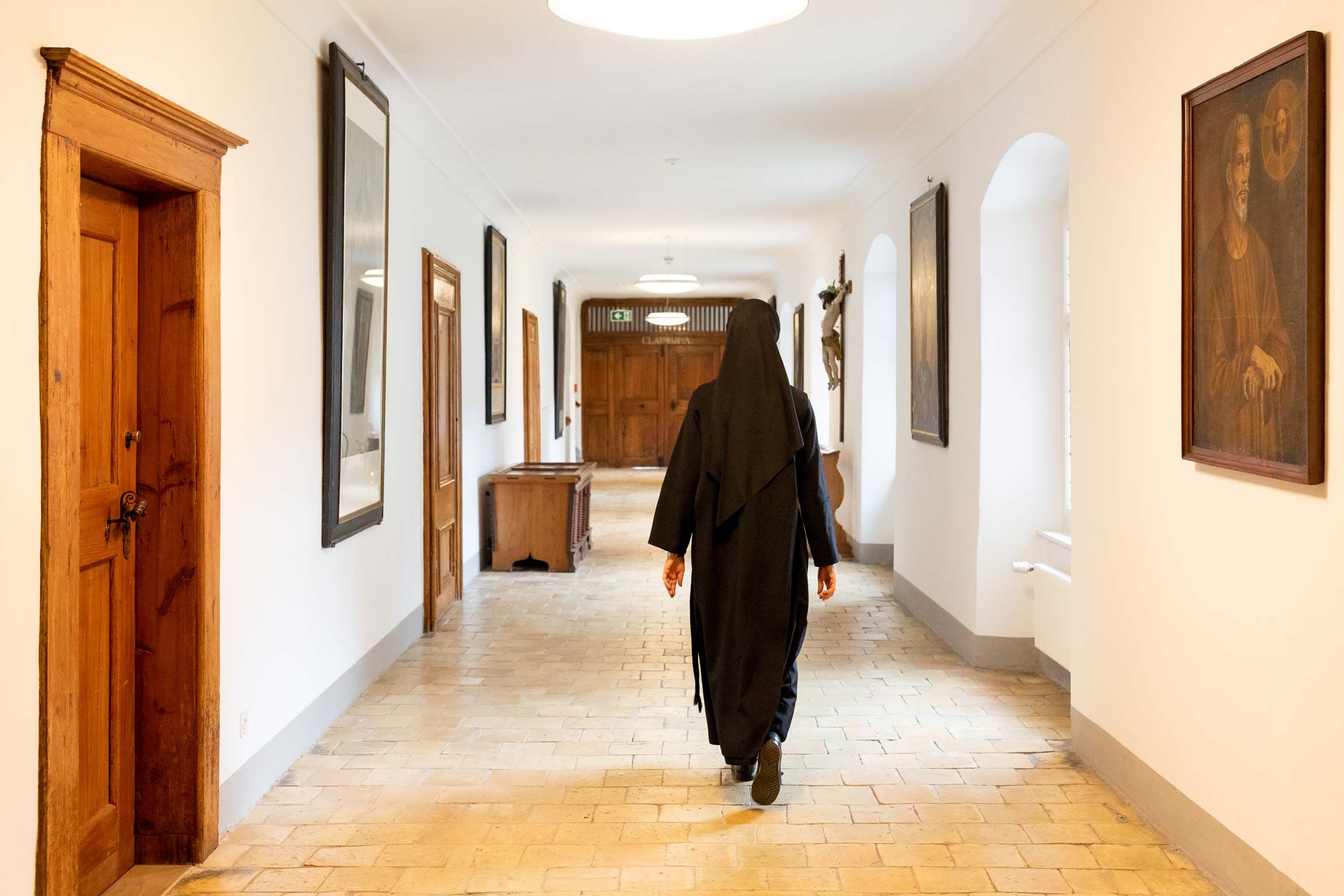
‘I am responsible for the sisters.’
‘I often have meetings with my assistant or with our administration or accounts departments. However, I regard my activity as prioress not as a profession but, rather, as a service to the community. I am also responsible for the sisters’ well-being and for enabling each of them to achieve her full potential.’
At the age of 56, Prioress Irene is the Benedictine convent’s youngest full member. Out of a total of 20 sisters, half are already aged over 80. For the past year, there has also been one novice – an aspiring nun – who is being initiated into the convent’s life. Despite this, there is still a shortage of new members – meaning, of young sisters to lead the convent into the future. For this reason, and because the convent has to stand on its own two feet financially, the prioress took the decision five years ago to launch a strategy process.
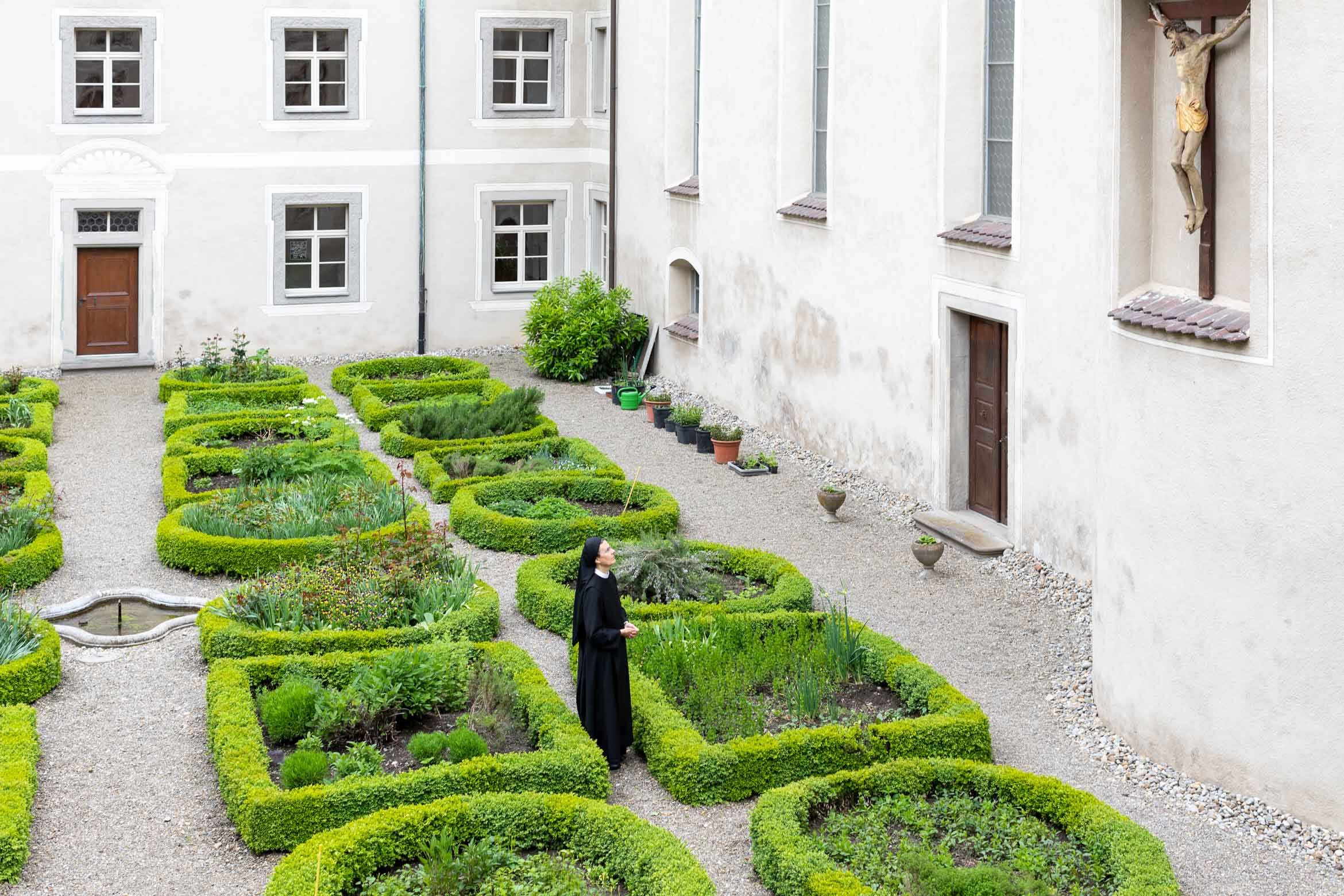
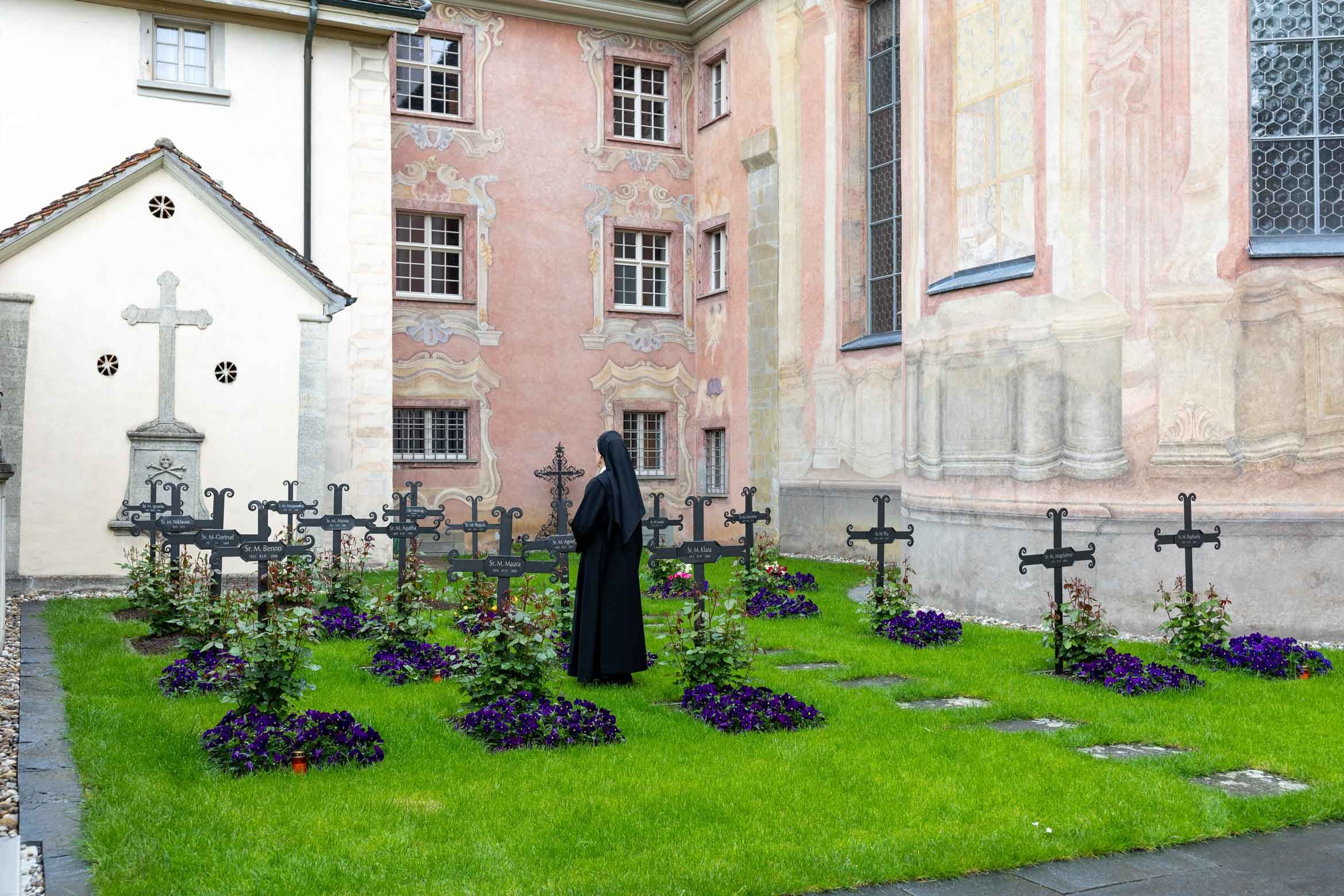
‘We offer women calm.’
‘In the past, we operated our farm, the restaurant and the winery ourselves and engaged a total of 40 employees. However, we are no longer able to cope with this, because of our age, so we have leased out the businesses and merged the winery with Einsiedeln Abbey. In addition, we will focus even more strongly in the future on our core functions of prayer and hospitality. For women who seek it, we offer the calm that comes from spending some time living with us in the convent. Unfortunately, the pandemic meant we had to stop offering this in recent months – but before coronavirus, there was huge demand for it. This is partly because many women would rather approach female church figures, but those are thin on the ground in our parishes.’
Irene Gassmann already had the desire to become a nun when she was just 21 years old. At that time, she spent six months attending the women farmers’ school that was run by the convent on a residential basis.
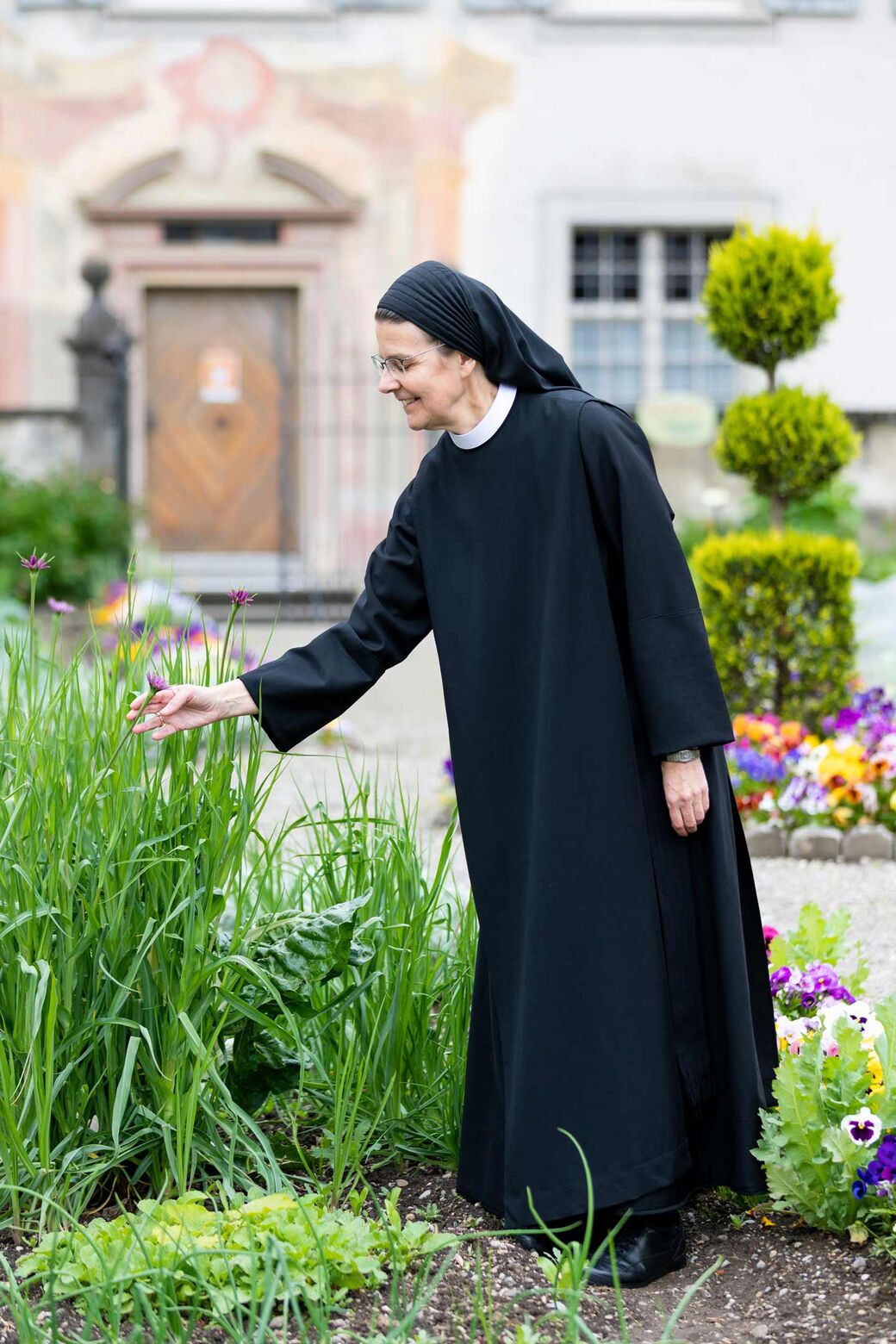
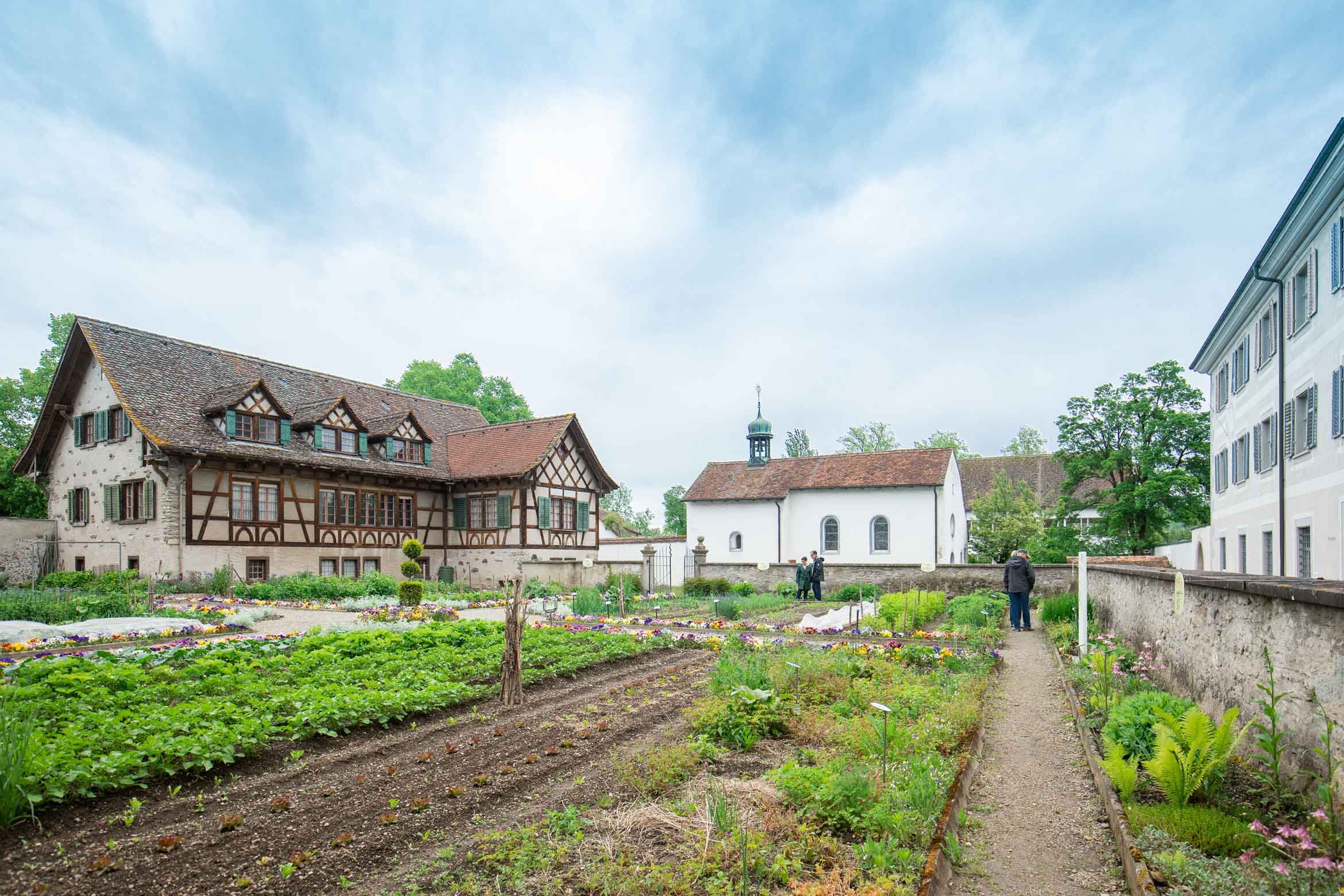
‘You must not wait for signs.’
‘At the residential school, I experienced at first hand what it means to be a nun, and I sensed that I was able to satisfy my longing here. This was, firstly, because I wanted at that time to work as a farmer while also having a lot of time for God. I saw that, at the convent, I could have both those things. This decision was a major step for me, and I was convinced that, for this to happen, I needed to hear a voice. And so, I asked God to send me a sign – but he did not. At some point, I no longer had the patience to wait and I took the decision to enter the convent anyway. Today I know that you do not need to wait for signs – you have to take decisions for yourself.’
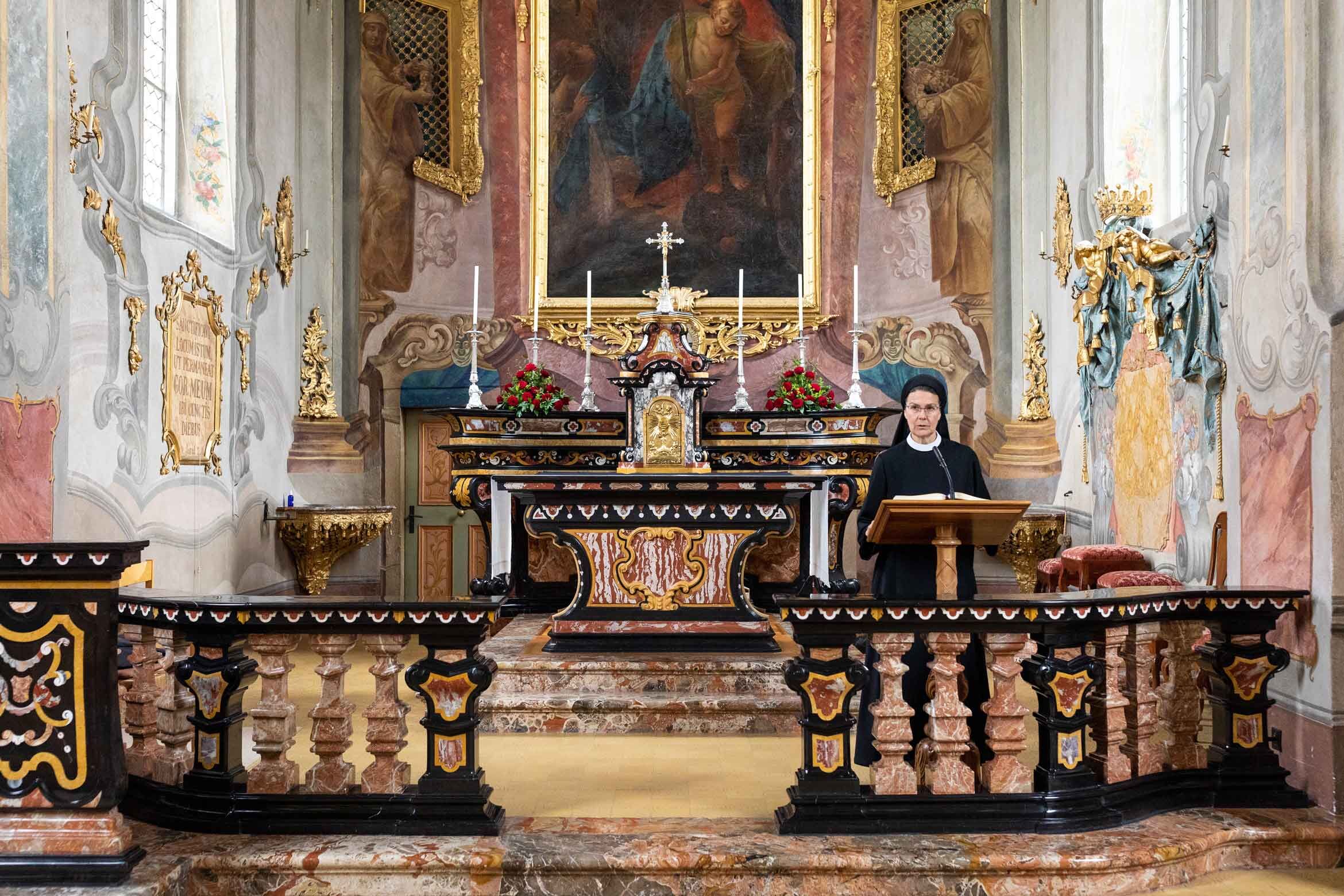
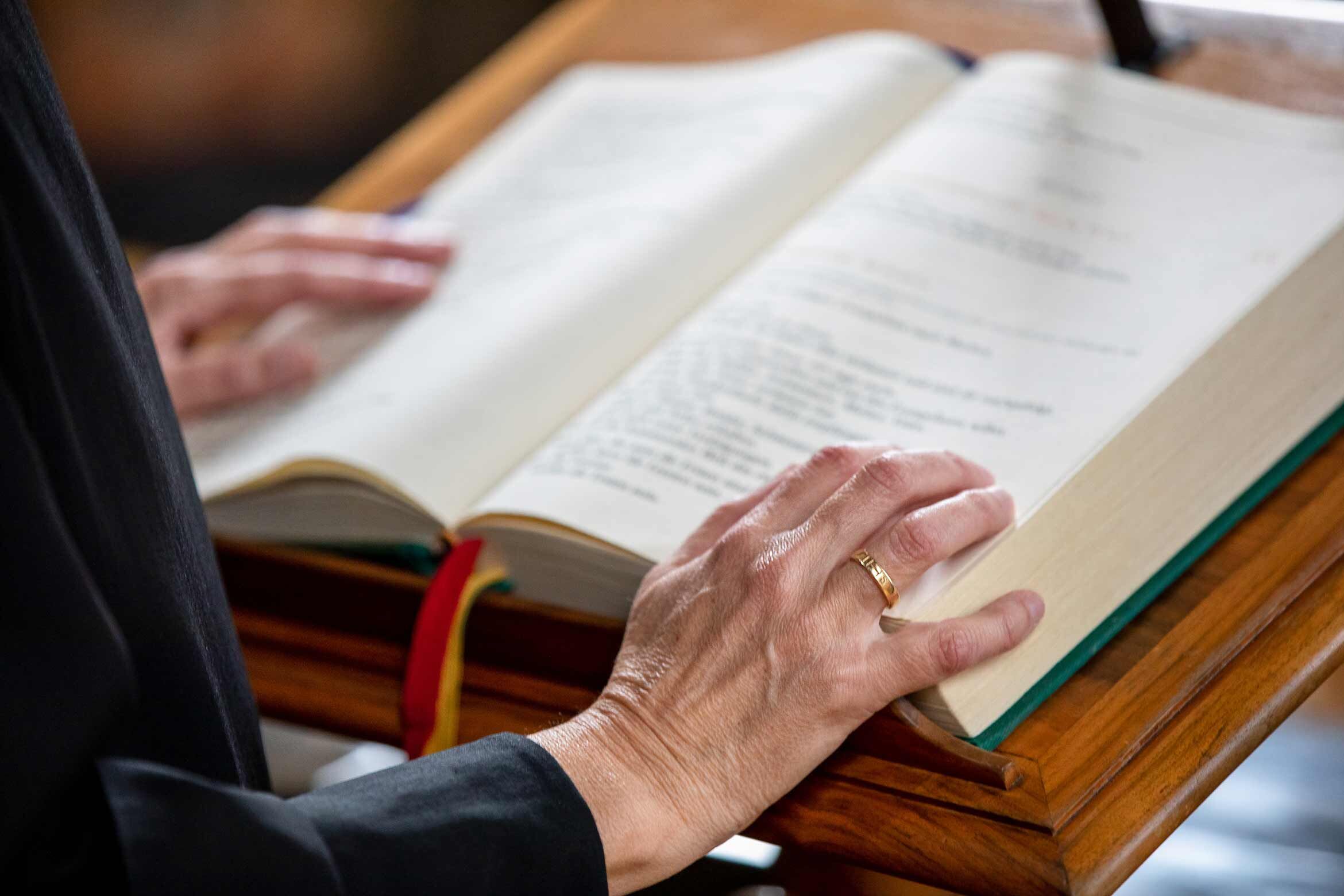
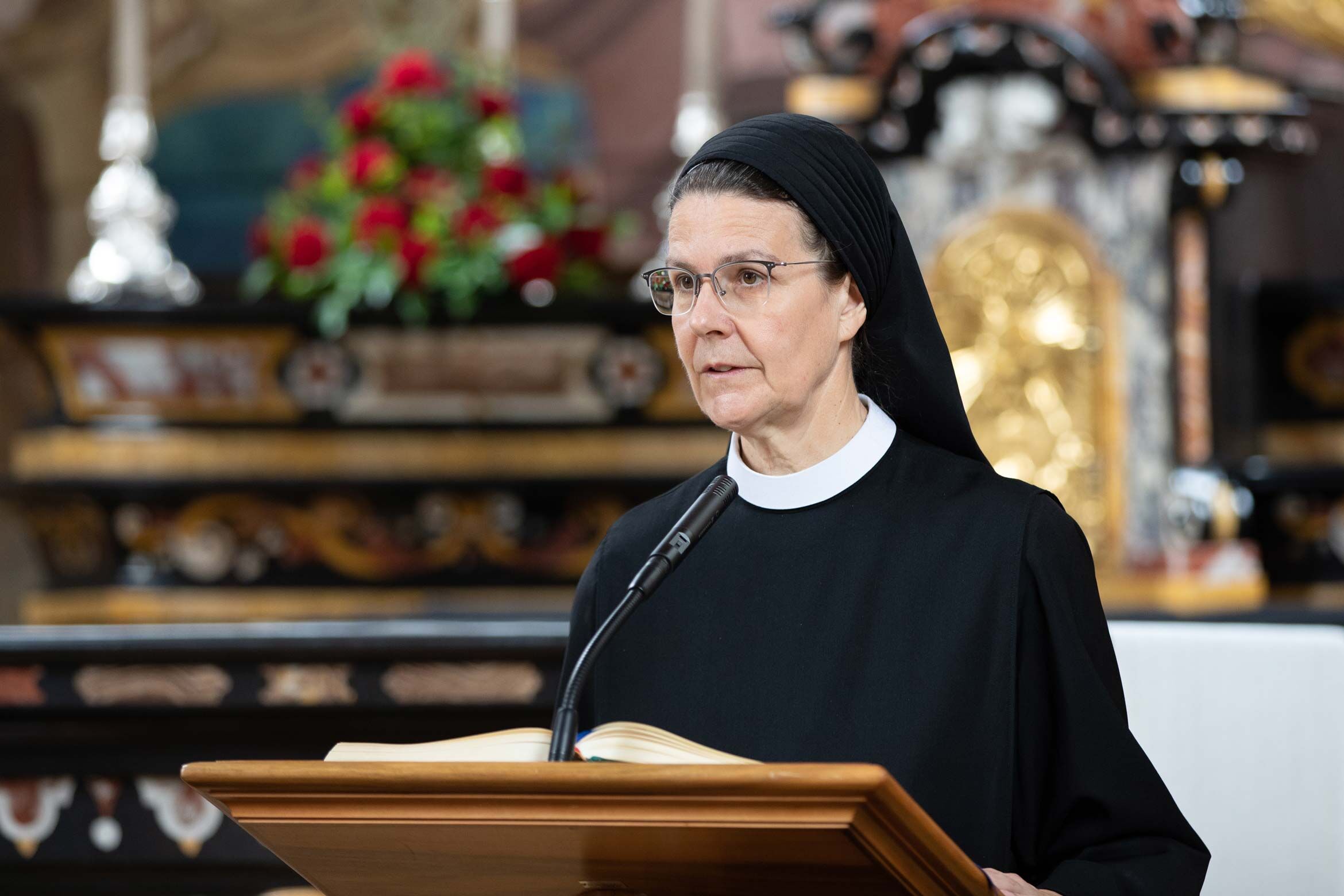
‘We actually receive money only when we need to buy ourselves something, such as shoes, or when we go on holiday.’
After entering the convent, Irene Gassmann trained as a home economics teacher and then spent ten years running the women farmers’ school, which was later closed down. In 2003, the sisters elected her as prioress.
‘We sisters receive neither a salary nor pocket money for our work, and we have absolutely no need of that, either. Our health costs, insurance, clothing and personal care products are provided for. We actually receive money only when we need to buy ourselves something, such as shoes, or when we go on holiday. This year, I am spending my holidays with two friends in the Valais (Wallis) region. I am looking forward to living at a different pace and being with different people. We will probably go walking, laze around and maybe take in an exhibition – but we will definitely have a lot of stimulating conversations.’
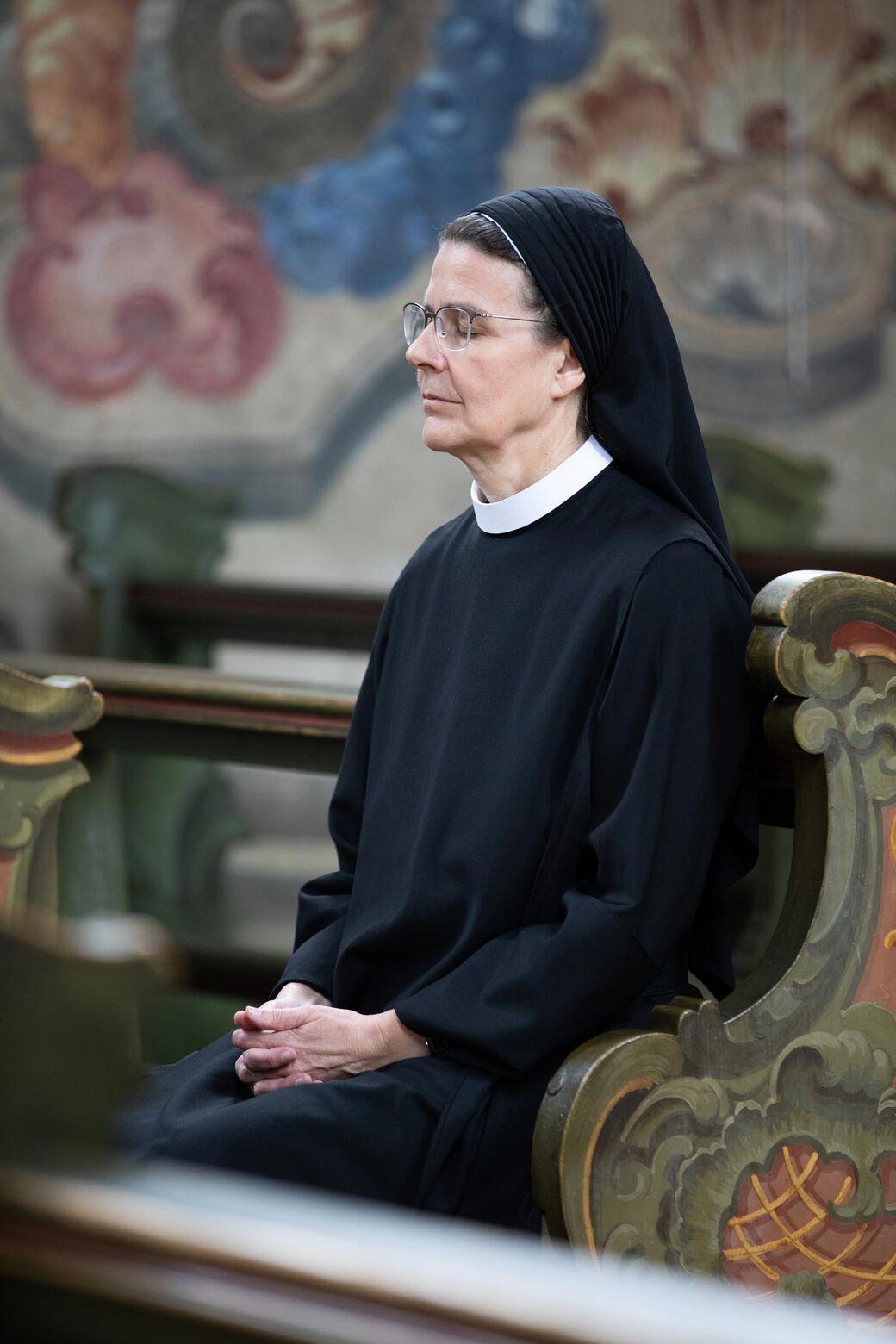
‘It is incomprehensible that people are excluded from serving the church just because they are female.’
It would be no exaggeration to describe Prioress Irene as a feminist. Her interest in these issues was sparked in 2016 when she, along with other women, made a pilgrimage to Rome for the ‘eine Kirche mit den Frauen’ (‘a church with women’) project to campaign for equality in the church.
‘We advocate that women should also be able to assume leadership roles and take part in decision-making in the church. However, I must admit that I have recently no longer had the strength to continue campaigning, because absolutely nothing is changing in that area. I do not accept the arguments of the opponents of equality, who do not realise that the world of 2000 years ago was a different one. It is simply incomprehensible that people are excluded from performing tasks in the church just because they are female.’
